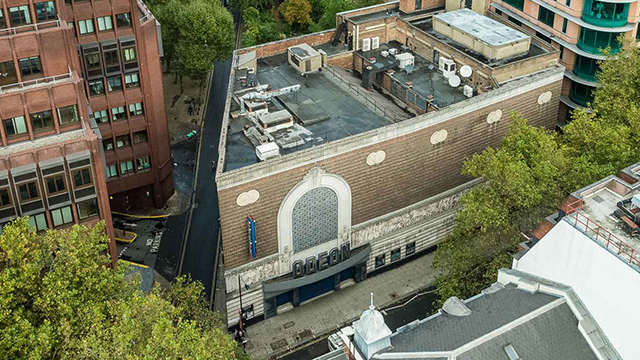Leading light: Islamic finance explained
Legal
by
Zahir Nayani and Adnan Shafi
The term may not be familiar to you, but to see the impact of Islamic finance in the UK you simply need to take a glance at the Shard, the Olympic Park or even the Battersea Power Station redevelopment. All of these are examples of monumental UK real estate projects that have been financed to some degree using Islamic finance facilities.
From the history of this continually growing field, alongside the UK government’s support to take Islamic finance to the next level, through to what the future holds for this sector, this series of articles will explore the role of Islamic finance in the UK real estate sector, and how it works.
A brief history
Now let’s cast ourselves back nearly 1,500 years to the time of the Prophet Muhammad, peace be upon him, when the Quran and the Hadith were revealed. The former being the core religious text that Muslims refer to for guidance and the latter being the actions, sayings and tacit approvals of the Prophet Muhammad. It was from these two sources of law that the core values of Islamic finance were born.
The term may not be familiar to you, but to see the impact of Islamic finance in the UK you simply need to take a glance at the Shard, the Olympic Park or even the Battersea Power Station redevelopment. All of these are examples of monumental UK real estate projects that have been financed to some degree using Islamic finance facilities.
From the history of this continually growing field, alongside the UK government’s support to take Islamic finance to the next level, through to what the future holds for this sector, this series of articles will explore the role of Islamic finance in the UK real estate sector, and how it works.
A brief history
Now let’s cast ourselves back nearly 1,500 years to the time of the Prophet Muhammad, peace be upon him, when the Quran and the Hadith were revealed. The former being the core religious text that Muslims refer to for guidance and the latter being the actions, sayings and tacit approvals of the Prophet Muhammad. It was from these two sources of law that the core values of Islamic finance were born.
These include: the prohibition on paying or receiving interest; avoiding uncertainty while trading with others; risk being a precondition for reward; and to only invest in accordance with a set of Islamic ethics and principles. This would form the foundation of a trade-based financial system which circled the globe until the fall of the Ottoman Empire and the beginning of the colonial period.
Islamic finance had to reinvent itself at the start of the modern age of independence where new states began to form. The Mit Ghamr Savings Bank, set up in Egypt in 1963, is credited as being the very first modern Islamic finance institution. It was said to offer profit and risk-sharing savings accounts and a range of financing solutions to customers.
Eventually, institutions such as Dubai Islamic Bank, established in 1975, and Kuwait Finance House, established in 1977, would be formed and followed by countless others. This would mark the start of a new era for the Islamic finance industry, with its global assets ballooning to $4.5tn (£3.5tn) in 2022.
Islamic finance did not manifest in the UK until 1982, when the first Islamic bank in the UK, Al Baraka International, was set up. At that stage, Islamic financial institutions remained focused on the residential mortgage market, with one of the first products being a form of cost-plus financing called Murabaha.
This product involved the bank purchasing a property on behalf of a customer and selling it to them for a markup on a deferred payment basis. The Islamic finance market in the UK shortly developed to where IFIs can provide commercial property finance and engage with more complex financial products.
UK government support
The 2000s saw the continual growth of the UK Islamic finance sector. This growth, however, was limited by difficulties posed by the contemporary tax regime and how it applied to Islamic finance products. For example, it is likely that an Islamic bank offering a Murabaha product during this time as described above would have to account to HM Revenue & Customs for any gain made on selling a property to their end customer.
Since Islamic banks were financing the same needs as conventional banks, the industry thought that it would only be fair to be taxed in the same way. The UK government – noting the potential of the sector and the importance of including customers looking for financial alternatives which comply with their faith – was inclined to agree.
In what would come to be referred to as the Alternative Finance Tax Regime, a range of subsequent changes were made to the Income Tax Act 2007, the Taxation of Chargeable Gains Act 1992 and the Corporation Tax Act 2009 to secure tax equality for the Islamic finance industry. It is for this reason that the UK remains one of the best Western jurisdictions in which to structure Islamic finance products. To date, the UK government remains willing to work with the industry to ensure equal treatment for Islamic finance products.
The industry’s Islamic Finance Hybrid Group, for instance, has recently worked with the All-Party Parliamentary Group on Islamic and Ethical Finance and HM Treasury to deal with unintended capital gains tax charges arising on Islamic property refinancings. Action is also being taken to understand the effects of the Building Safety Act 2022 on the industry and how any challenges can be addressed.
The UK government also expressed its confidence in the Islamic finance industry by being the first Western government to issue Sukuk, an Islamic alternative to conventional bonds, in 2014. The issuance was oversubscribed by 11 times and the government, once again, returned to the Islamic capital markets in 2021 to complete its second issuance.
Acts such as this have cemented the UK’s position as a key Islamic finance hub and are part of the reason for the UK being one of the main global listing destinations for Sukuk.
The living sector as a key asset class
To no surprise, real estate remains the most widely represented asset class in the UK Islamic finance market. Other products were later developed to answer the demand from Shari’ah-sensitive international investors, mainly from the Gulf Cooperation Council, looking to gain access to the UK real estate market. Considering the UK real estate market’s established track record and the Alternative Finance Tax Regime, this became an easy path to growth for several Islamic banks.
Within the UK real estate market, we have seen a key interest from IFIs in the living sector. For example, we have advised several Islamic banks on financings where the underlying assets include purpose-built student accommodation, hotels and buy-to-let properties.
Purpose-built student accommodation, in particular, has grown in popularity as demand for UK student housing has increased, leading to investment in the UK reaching £3.87bn in 2024. Furthermore, in a post-Covid world with the hospitality sector’s return to normal service, Shari’ah-sensitive investors continue to prioritise the hotel sector as a key area for growth.
Although these are the primary areas of interest within the real estate sector at present, we have also seen certain IFIs look towards other sub-asset classes such as warehousing and corporate offices. On a much smaller level, IFIs have also began to venture into small and medium-sized enterprises and other areas, although this is yet to develop on an industry-wide level.
The future of islamic finance
Islamic finance’s continuous evolution is highlighted, for instance, by the increased number of UK Islamic fintechs. These are IFIs that do not take the same form as traditional deposit-taking banks, and are instead focused more on crowdfunding, e-money and peer-to-peer funding solutions to finance their operations.
To date, these types of IFIs have made appearances in the residential home finance, bridge finance and payments sectors.
This does not mean the world of traditional Islamic banks has slowed down. In fact, the sector continues to inch towards forming larger syndicates as facility amounts grow. A recent example is Foot Anstey advising on a £140m purpose-built student accommodation refinancing deal including Abu Dhabi Islamic Bank and Emirates NBD.
Furthermore, we have recently seen Islamic banks build considerable mortgage books and this has triggered a range of securitisation and portfolio sale transactions – for example, Offa’s purchase of the Bank of Ireland’s Alburaq Sharia-compliant home finance portfolio in late 2024.
Islamic finance has come a long way in 1,500 years. Now, it continues to help light the illustrious London skyline and fulfil the aspirations of those searching for a way to achieve their goals without having to compromise on their faith.
Next time: How Islamic finance institutions are regulated
Zahir Nayani is a partner and Adnan Shafi is a trainee solicitor at Foot Anstey
Image © Charlie Round-Turner











